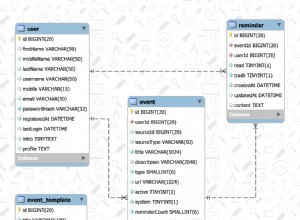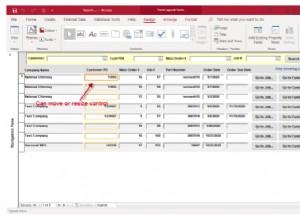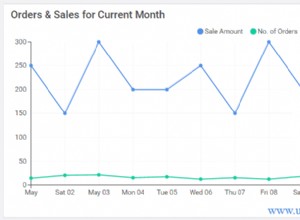Devi usare ANYTYPE per descrivere ANYDATA e assicurati che il tipo sia corretto. Quindi puoi accedere all'attributo usando piecewise e getVarchar2 .
La maggior parte del codice seguente serve per controllare il tipo, che non ti serve se non sei preoccupato per la sicurezza del tipo.
Funzione per restituire il valore:
create or replace function get_first_attribute(
p_anydata in out anydata --note the "out" - this is required for the "piecewise"
) return varchar2 is
v_typecode pls_integer;
v_anytype anytype;
begin
--Get the typecode, and the ANYTYPE
v_typecode := p_anydata.getType(v_anytype);
--Check that it's really an object
if v_typecode = dbms_types.typecode_object then
--If it is an object, find the first item
declare
v_first_attribute_typecode pls_integer;
v_aname varchar2(32767);
v_result pls_integer;
v_varchar varchar2(32767);
--Variables we don't really care about, but need for function output
v_prec pls_integer;
v_scale pls_integer;
v_len pls_integer;
v_csid pls_integer;
v_csfrm pls_integer;
v_attr_elt_type anytype;
begin
v_first_attribute_typecode := v_anytype.getAttrElemInfo(
pos => 1, --First attribute
prec => v_prec,
scale => v_scale,
len => v_len,
csid => v_csid,
csfrm => v_csfrm,
attr_elt_type => v_attr_elt_type,
aname => v_aname);
--Check typecode of attribute
if v_first_attribute_typecode = dbms_types.typecode_varchar2 then
--Now that we've verified the type, get the actual value.
p_anydata.piecewise;
v_result := p_anydata.getVarchar2(c => v_varchar);
--DEBUG: Print the attribute name, in case you're curious
--dbms_output.put_line('v_aname: '||v_aname);
return v_varchar;
else
raise_application_error(-20000, 'Unexpected 1st Attribute Typecode: '||
v_first_attribute_typecode);
end if;
end;
else
raise_application_error(-20000, 'Unexpected Typecode: '||v_typecode);
end if;
end;
/
Tipi:
create or replace type Person_type as object (fname varchar2(10), lname varchar2(10));
create or replace type other_type as object (first_name varchar2(10), poetry clob);
Esecuzione di prova:
declare
--Create records
v_type1 person_type := person_type('Ford', 'Prefect');
v_type2 other_type := other_type('Paula', 'blah blah...');
v_anydata anydata;
begin
--Convert to ANYDATA.
--Works as long as ANYDATA is an object with a varchar2 as the first attribute.
v_anydata := anydata.convertObject(v_type1);
dbms_output.put_line(get_first_attribute(v_anydata));
v_anydata := anydata.convertObject(v_type2);
dbms_output.put_line(get_first_attribute(v_anydata));
end;
/
Uscite:
Ford
Paula




